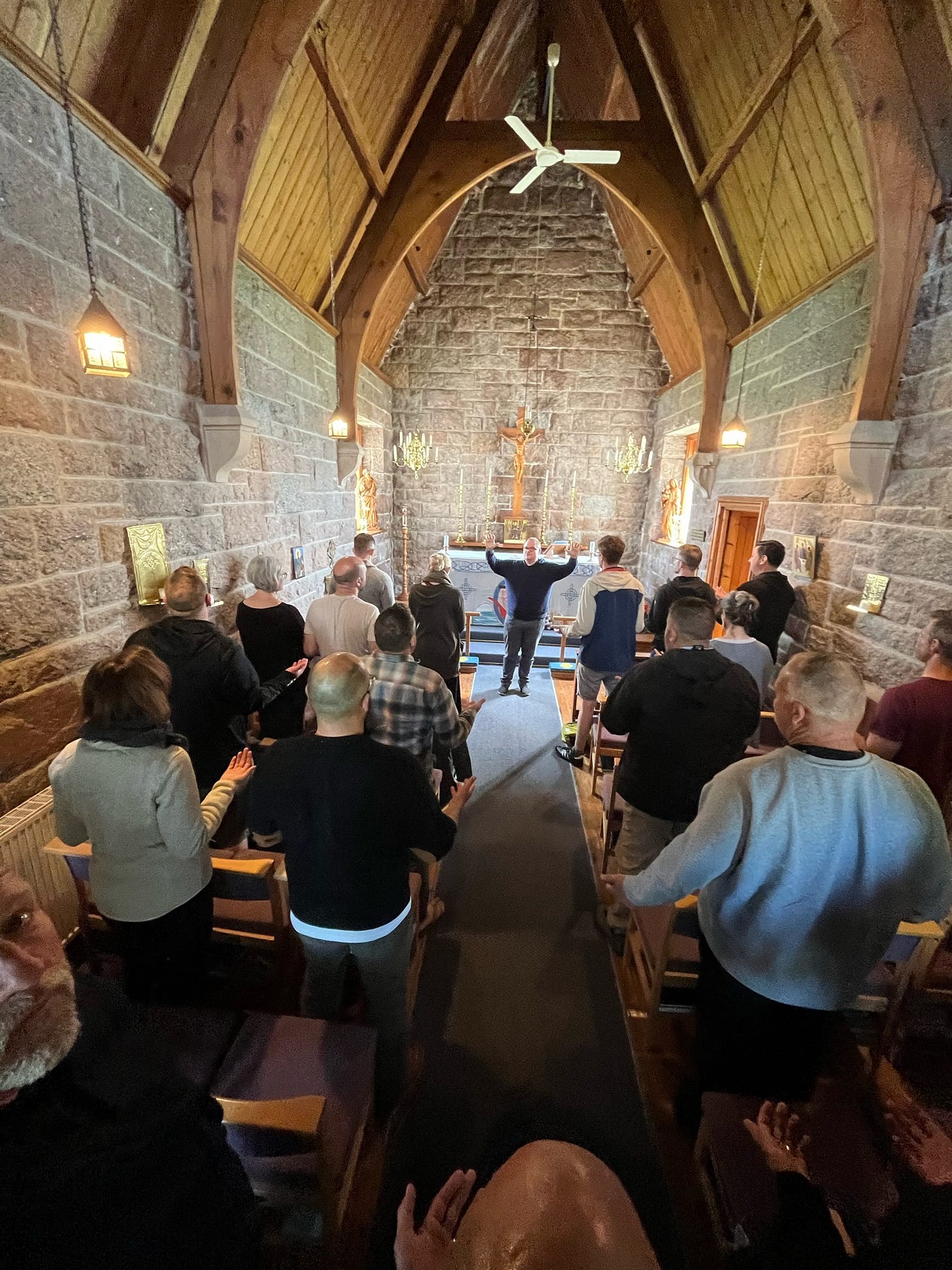When most people hear the word “Doctor” they think about Medical Doctors. Lawyers are Juris Doctors or Doctors of the Law and PhD’s are Doctors of Philosophy, and ThD’s are Doctors of Theology, etc. So what is a Doctor of Ministry? It certainly doesn’t mean that the D.Min. graduate has expansive mastery in philosophy or even theology. They might be a good teacher, but it is not the degree to pursue if you are called to be a professor in philosophy or theology. And, it is for sure NOT a medical doctor. You wouldn’t want medical advise from me. I would prescribe tums and aloe vera or some combination for everything—ask my kids. If a Doctor of Ministry can’t help you with a legal or medical issue, and might not even know all the details of philosophy or theology— So, what good is it anyway?

As Pastor Winn was wrapping up our last cohort gathering, I was recalling the Douay-Rheims1 translation of Ephesians 4.11-13.
11 And he gave some apostles, and some prophets, and other some evangelists, and other some pastors and doctors, 12 For the perfecting of the saints, for the work of the ministry, for the edifying of the body of Christ: 13 Until we all meet into the unity of faith, and of the knowledge of the Son of God, unto a perfect man, unto the measure of the age of the fulness of Christ.
This is the only translation that I know of that translates the Greek διδασκάλους didaskalous as “doctor” instead of the more common “teacher.” I think this old Catholic edition is shaped by the recognized office “Doctor of the Church,” as the Wikipedia article on the subject begins:
Doctor of the Church (Latin: doctor "teacher"), also referred to as Doctor of the Universal Church (Latin: Doctor Ecclesiae Universalis), is a title given by the Catholic Church to saints recognized as having made a significant contribution to theology or doctrine through their research, study, or writing.
These Doctors of the Universal Church (Doctor Ecclesiae Universalis) include 37 recognized Doctors from the Eastern and Western Church and from most continents and include 4 women.
The reason I like this translation is probably a stretch. Paul tells the Ephesian congregations that God has given these gifts to the church “to equip the saints” (Ephesians 4.12). The word for “equip” is καταρτισμὸν katartismon Catharsis. Among other uses, the word translated “equip” is a medical term. Binding up wounded limbs. Setting bones. Fixing teeth. Applying sauve. But, here the patient is the human body of Christ—we who participate in the real life and ministry of Christ our head.
The Body of Christ needs Pastor-Doctors. Pastor-Doctors who look you in the eyes. Curious Pastor-Doctors who ask diagnostic questions for the sake of healing—and who really listen. Pastor-Doctors who are really with you when they are with you. Pastor-Doctors who know that the soul is as real as the body, and the soul has a great impact on the body. It is not the body’s job to make the Pastor-Doctor famous, or increase their influence, or make them feel important. It is nice when the people of the parish, “get with the program” but that is not their job. Vicar Colin Heber Percy says about the parish, “I never think of them as my parishioners; I’m their vicar.” The Body of Christ needs Priest-Doctors who are good at referring everything to the Great Physician. Priest-Doctors who diagnose, intercede, prescribe the balm of the grace to the brokenhearted. Priest-Doctors who feed Christ’s precious flock a diet of the healing gospel. The Prophet Jeremiah speaks disparagingly about CEO-Pastors who “have healed the wound of my people lightly” (Jeremiah 6.14).
Doctors practice. I love the grace of that word. It takes time and patience to practice medicine or law or philosophy. It also takes time to practice ministry. We don’t always get it right, but we want to. We want to get better.
Maybe a good way to think about what kind of Doctor is a Doctor of Ministry is more like Doctor of the Parish Church (Doctor Ecclesiae Parochialis) or a Doctor of Souls or Soul Care (Doctor Animarum or better Seelsorger).
I want to practice this kind of medicine. Not a Doctor of the Universal Church, but a Parish Doctor. Which is good, because it is what I am called to do at Blessed Trinity.
The Douay–Rheims Bible is a translation of the Bible from the Latin Vulgate into English made by members of the Catholic seminary English College, Douai, France. It is the foundation on which nearly all English Catholic versions are still based.
It was translated principally by Gregory Martin, an Oxford-trained scholar, working in the circle of English Catholic exiles on the Continent, under the sponsorship of William (later Cardinal) Allen. The New Testament appeared at Rheims in 1582; the Old Testament at Douai in 1609.
The translation, although competent, exhibited a taste for Latinisms that was not uncommon in English writing of the time but seemed excessive in the eyes of later generations. The New Testament influenced the Authorized Version.
Between 1749 and 1752, English bishop Richard Challoner substantially revised the translation with an aim to improve readability and comprehensibility. It was first published in America in 1790 by Mathew Carey of Philadelphia. Several American editions followed in the 19th and early 20th centuries; prominent among them the Douay-Rheims 1899 American Edition Version. (from Bible Gateway)





You've answered the call. Thank you.
You really are a parish doctor, healing broken hearts through love.